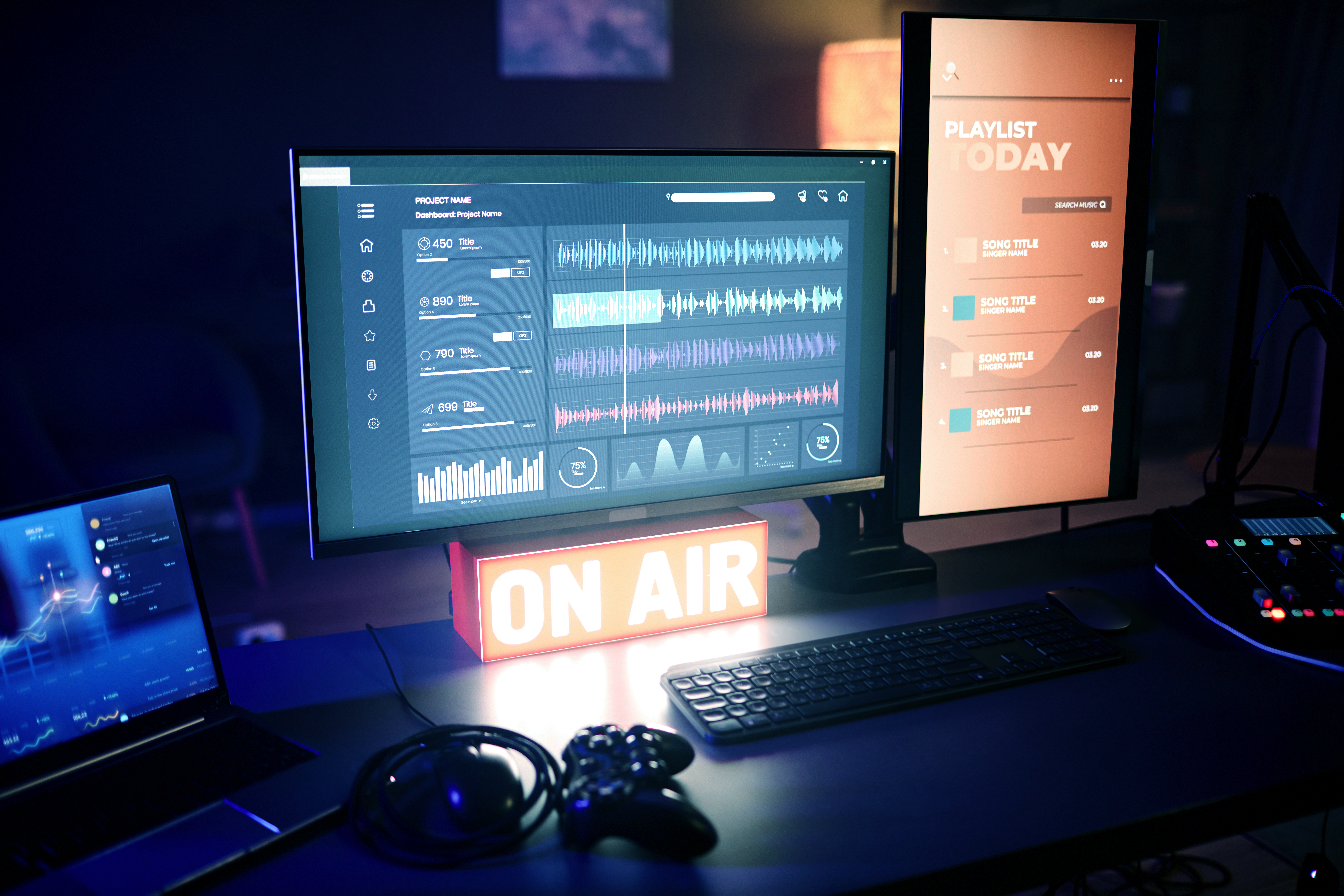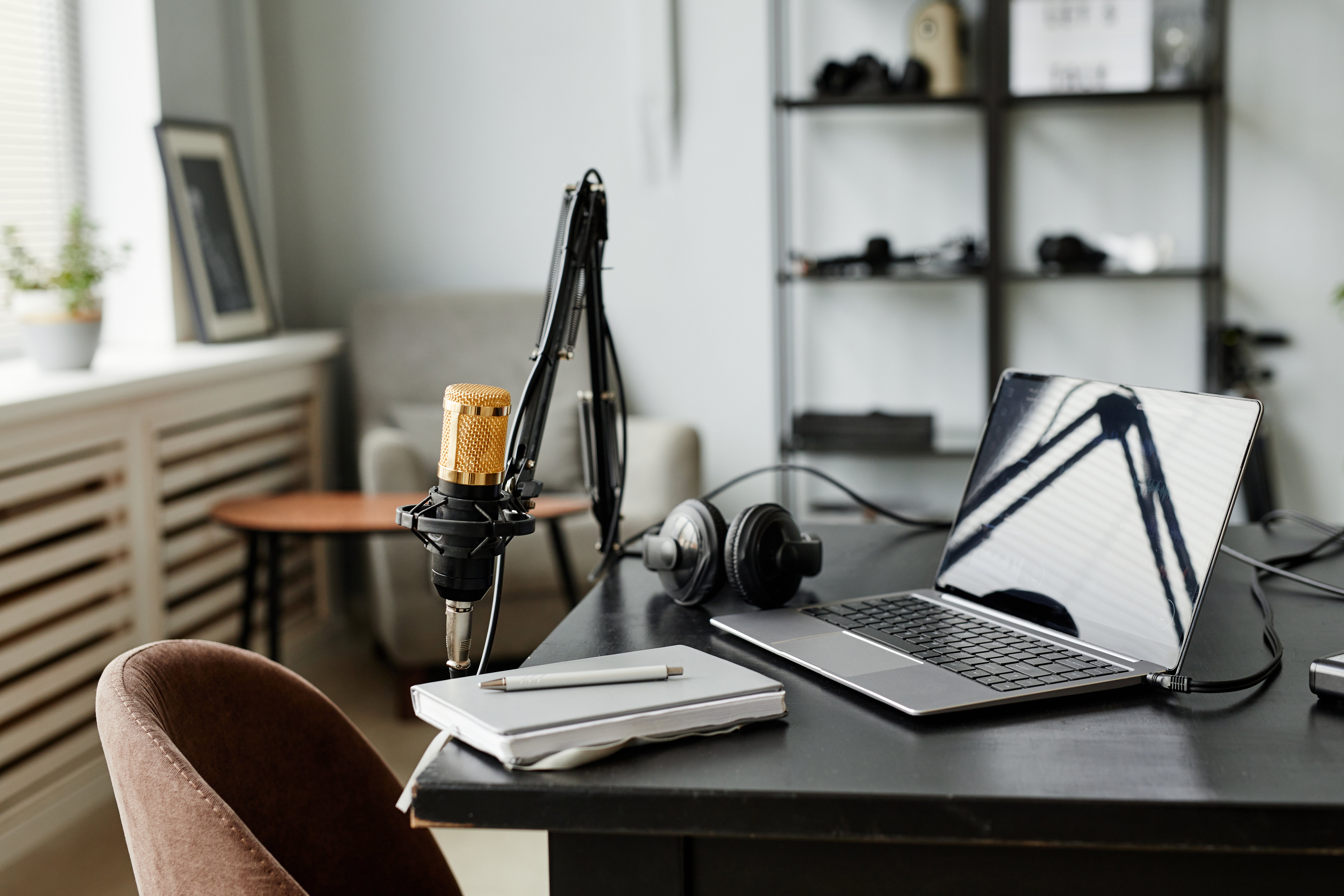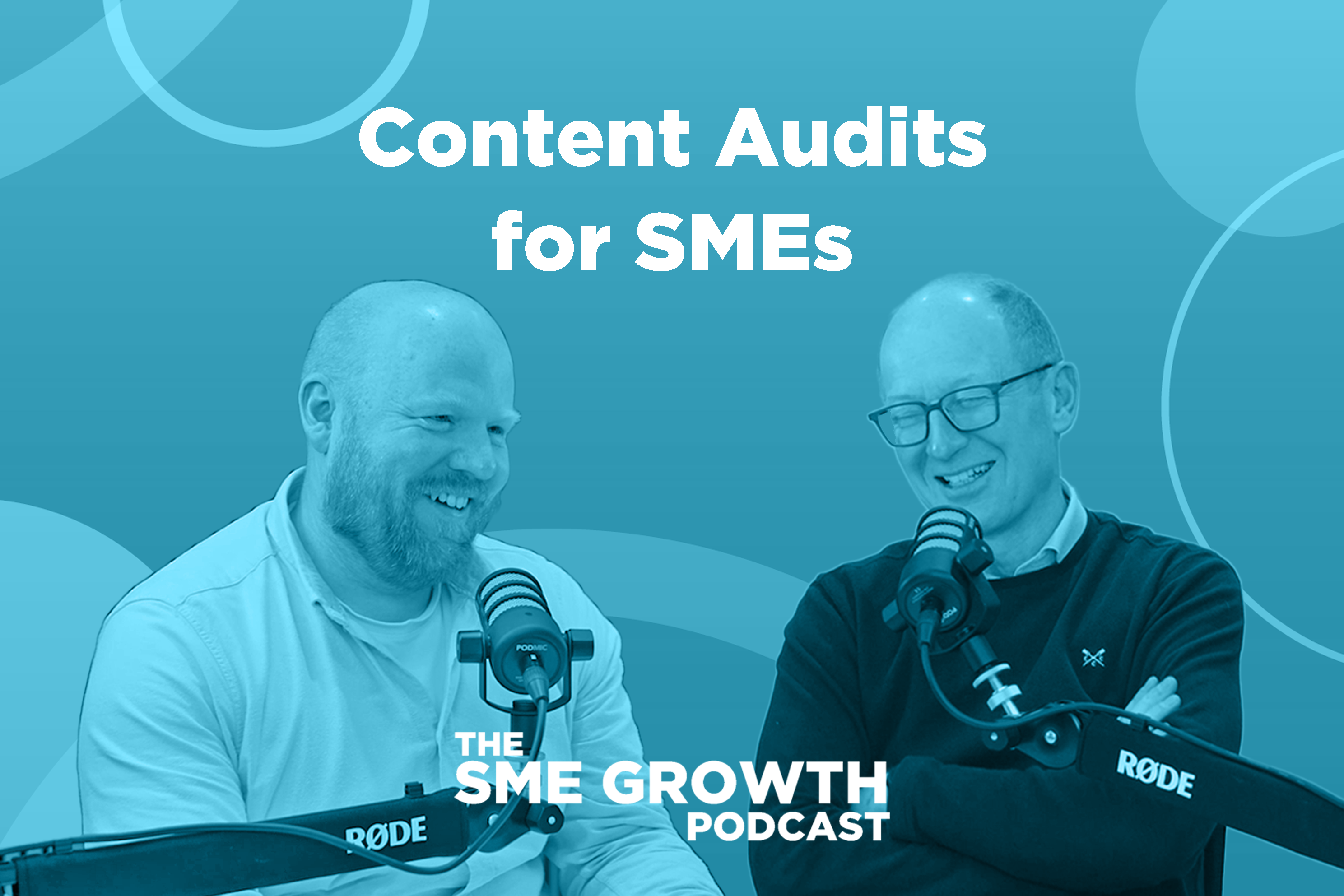Episode 08: Content Audits for SMEs
In this episode of The SME Growth Podcast, Dave Parry and Richard Buckle discuss the importance of SMEs completing a content audit. Covering the...
Wellmeadow supports ambitious companies with business growth enabled by HubSpot.
We've worked with over 100+ businesses at board-level across sectors such as automotive, manufacturing, healthcare, legal, SaaS, and professional services.

%20(A4).png?width=71&height=100&name=portrait%206-box%20model%20diagram%20(1170%20x%207051%20px)%20(A4).png)

-1.png?width=70&height=70&name=Square%20(1)-1.png)

Did you know that that 90% of podcasts fail before releasing 3 episodes? Read our guide to get yourself on the right track to podcasting success.
In 2022, Statista reported that 21.2 million people in the UK regularly listen to podcasts, and expected that to rise to 25.2 million by 2024. It's no surprise that more and more businesses are starting podcasts to be able to communicate directly to their audience. Podcasts are one of the most easily accessible forms of media as there is no requirement for a visual element and gives the audience flexibility to consume your content when convenient to them.
As stated before, according to Modern Wisdom, 90% of podcasts fail to release more than 3 episodes. Then from that 10% that make 3 episodes, only 10% of those make it to 21 episodes. Meaning if you hit 21 episodes, you are then in the top 1% of those creating podcasts.... Congratulations!
We recently hit the 21st episode on our own podcast, The SME Growth Podcast, and to commemorate it, we discussed what we have learnt from our own podcasting experience and broke it down to The 5 Ws of Who, What, Where, When and Why for podcasting. You can listen to the episode here, or read on for our blog summary...
WHO
Who needs to be considered from both an internal and external perspective. Who is your target audience, but additionally, who is going to be involved in the podcast for things like hosting and post production?
When planning your content it is vital to consider your target audience (which could be informed by your buyer personas). By defining your target audience, you can tailor your podcast's content, style, and tone to better resonate with your listeners.
It is just as important to plan who is going to be involved internally. Are you going to have consistent hosts or regular guests? It is key when choosing speakers, to find the right balance between subject matter experts and engaging personalities. Do remember though it does takes time to find one's feet in podcasting, and not everyone is going to be the next Joe Rogan or Steven Bartlett immediately.
In addition to the hosts, there needs to be a plan for post production. Will someone do this internally or is outsourcing the work a viable option. It may be different members of the team take responsibility for different stages of the process, from editing, to upload and then finally promotion.
WHAT
Next, you'll need to decide what your podcast is actually going to be about. Think about what you're passionate about, and what information or insights you can offer your audience. If it's a subject you are knowledgeable about and actually interested in, the podcast will come across as more enjoyable and authentic to the listeners. You also need to consider in what way is your podcast going to stand out in the sea of podcasts, consider what unique angle or expertise you can bring to the table.
Once you've chosen a topic, decide on a format that best presents your content. Some popular podcast formats include interviews, storytelling, panel discussions, and solo shows. This also links back to the previous point of who, the number of hosts or people presenting the podcast will also impact what format it takes.

WHERE
Where is a question both physically and digitally. First, is quite simple where are you going to record? Whilst it may seem a basic question, the location used for recording is really important as elements like room acoustics and background noise will have an impact on your audio quality. You could set up a studio or rent a professional space, depending on your budget and preferences. Additionally, consider investing in some high quality equipment to help boost the quality of your podcast as well as helping optimise the processing stage at the end.
Next, consider where you are going to edit your podcast. If it's audio only there are great free software choices like Audacity or if you are already using Adobe you could use Audition. There are plenty of great audio editing softwares out there so find what works best for you. Some podcasting host platforms will have editing tools in their offering but we will get onto those in a moment. Likewise, if you are creating video content, software also needs to be considered.
Once your episode is ready for publishing, you'll need to choose a podcast hosting platform that will store and distribute your content to podcast directories like Apple Podcasts, Spotify, and Google Podcasts. We use Spotify for Podcasters (previously known as Anchor.FM), which allows for for distribution across all major platforms as well as providing RSS link which can be used to automate publication to further platforms.
WHEN
Consistency is key to building a loyal following so consider a release schedule that works with your business needs. Be realistic about the time commitment required for planning, recording, editing, and promoting your podcast. Ensure the schedule is realistic for your own business logistics but it is key to think about the releases schedule in terms of building momentum and audience for your podcast. Whilst there's no need to immediately jump into a daily podcast, which could be overwhelming and need a dedicated team to achieve, the episodes still need to be regular enough to build momentum and gain regular listeners. Releasing weekly gives steady content for your audience to keep returning to, fortnightly might be more of a push and monthly will be challenging to build that listener community around. Once settled on the release time, stick to your schedule to help your audience know when to expect new episodes, and to establish yourself as a reliable content creator.
Another element of when, is to decide on the length of the episodes. The ideal length for a podcast varies according to the speakers' preferences and the audience's listening habits. Some people may prefer a 15-minute bite-sized version, while others might enjoy longer podcasts, around an hour and a half. Our own podcast tends to be 30 minutes, which was informed by our business based audience listening to the podcast during commutes. The average podcast length tends to be 25-30 minutes, however some of the top rated podcasts do have longer lengths which suit their chosen format better.
WHY
On surface level, why wouldn't your business want to have a podcast? Podcasts are a fast-growing medium for content consumption, providing a convenient way for people to listen at their own convenience, whether they're driving, exercising, or working. However, there does need to be more of a reason why than just because we should. Understanding the purpose behind your podcast will help you create focused and engaging content. Are you looking to educate, entertain, or inspire? Is your goal to become a thought leader in your field? Knowing your "why" will keep you motivated and help you attract listeners who share your values and interests. Podcasting can be a scalable and efficient way to create content, reaching a wider audience and generating interest in one's business or organisation, but a clear justification and reasoning as to why you are doing it is key to stay motivated.
Starting a podcast can be an exciting and fulfilling endeavour and a great way to make consistent, engaging content for your audience. By following the "Who, What, Where, When and Why" framework, you can build a solid foundation for your podcast and create content that resonates with your target audience. Remember, podcasting is a journey, and with patience and persistence, you can grow your show into a thriving platform and as a result grow your business.
LISTEN TO THE EPISODE
Also available to listen on Apple Podcast, and click here for all other available platforms.

In this episode of The SME Growth Podcast, Dave Parry and Richard Buckle discuss the importance of SMEs completing a content audit. Covering the...

Are you struggling to create valuable content for your business? In this episode of The SME Growth Podcast, Dave Parry and Richard Buckle dive into...

In this episode of The SME Growth Podcast, Dave Parry and Richard Buckle are joined by Seb Slater, Executive Director of Shrewsbury BID, to discuss...